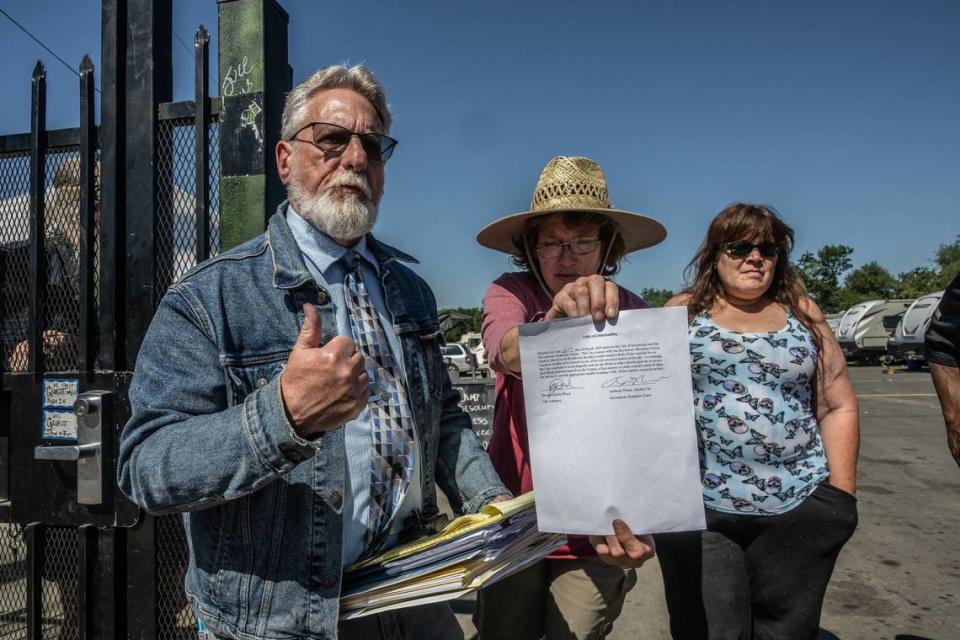Sacramento tried to house a homeless disabled woman. She’s still living in a tent
The city of Sacramento has not provided stable housing for a quadriplegic homeless woman, Holly Porter, as it has promised to try to do.
At the end of March, city attorney Susana Alcala Wood signed a letter of understanding that said “the City commits to work diligently and use all efforts to either directly provide or secure and obtain commitments from the County of Sacramento or other sources within 45 days, the means to provide appropriate durable housing to Ms. Porter and her caregiver mother.”
The agreement was signed 54 days ago, but Porter, who is described as “functionally quadriplegic,” still spends most of her time in an adjustable hospital bed in a tent at Camp Resolution. The North Sacramento encampment won a lease with the city in March, becoming the first sanctioned self-governing homeless encampment in the county — and, possibly, the country.
The city has agreed that the camp will continue without being “swept” until every resident has permanent housing.
This novel arrangement, in which homeless adults at the women-led community make their own rules, could become a model for the country. In the six weeks since the camp became official, the city has delivered 16 trailers, and people have moved out of tents or older trailers.

However, delays with rehousing Porter and the lack of generators to provide power to the new trailers have driven home the sluggish and fractured approach local governments have taken in addressing the homelessness crisis.
Katharine Weir-Ebster, a representative for the city, said that according to the lease, Sacramento was not responsible for providing generators because they constituted utilities. Weir-Ebster said, “The City of Sacramento continues to use all available resources to help people experiencing homelessness transition into temporary and permanent housing.”
‘It’s all on them’
Residents in the camp pointed out that the city and county were continuing to clear other homeless encampments, even as Camp Resolution was granted permission to remain in place.
At a news conference Tuesday morning, the California Homeless Union attorney who has represented the residents in negotiations with Sacramento said he was meeting with the city the same day to discuss the city’s breach of the agreement with Porter.
“It’s time to fish or cut bait,” said the lawyer, Anthony Prince. “We’re not going to buy any of these excuses any longer.”
“It’s all on them,” Porter said, referring to city officials as she lay in her tent. It was not yet noon, but the day was already sweltering, and a midsize fan blew more hot air in her direction. Porter has been homeless for years.

“I’ve completed everything,” she said. “Everything they wanted, pretty much down to the time I s---.” She was, she said, “not getting (her) hopes up” that the city would follow through on its agreement.
Crystal Sanchez, the president of the Sacramento Homeless Union, praised the city for providing trash service and trailers. At the same time, she pointed out that without water, the residents could not use the toilets in the trailers. Without power, the metal trailers became incredibly hot in the beating sun. A small solar power station the camp acquired itself, she said, provided limited power to about 20 of the trailers — a resident could run, for example, a fan but not a refrigerator.
A local business owner, Sean Murphy of Town and Country Contractors Inc., planned to donate the money to acquire a second solar power station, which would allow more residents to have some power in their trailers. As Sanchez spoke to reporters on Tuesday, a man drove up in a red minivan and dropped off a case of bottled water for the camp, which has no water supply.
“This is what it looks like,” Sanchez said. “Community.”

